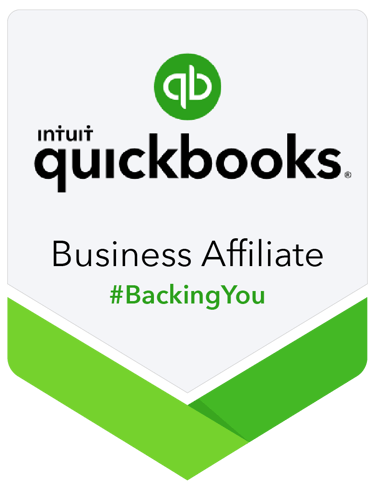How to Include Bookkeeping in Your Business Plan: A Complete Guide for Entrepreneurs
Learn how to incorporate bookkeeping into your business plan for funding success. Get practical tips, and systems that work for solopreneurs and small teams.
BOOKKEEPING
Jerry Blanco
7/4/20255 min read


Why Smart Financial Planning from Day One Sets Your Business Up for Success (And How to Do It Without an Accounting Degree)
Picture this: You're pitching your brilliant business idea to a potential investor or applying for a small business loan. You've got passion, you've got a great product or service, and you're ready to change the world. Then comes the dreaded question: "Show me your financial projections and bookkeeping system."
If that scenario makes your palms sweat, you're not alone. Most entrepreneurs focus on the exciting parts of their business plan—the marketing strategies, the product development, the vision—while treating bookkeeping like that pile of laundry you'll "get to eventually."
But here's the thing: incorporating solid bookkeeping into your business plan from the start isn't just about impressing investors (though it definitely helps). It's about giving yourself a roadmap to profitability and the tools to make smart decisions every single day.
Why Your Business Plan Needs a Financial Foundation (Not Just Dreams and Coffee)
Think of your business plan as a house blueprint. You wouldn't build a house without planning the foundation, right? Your bookkeeping system is that foundation—it supports everything else you want to achieve.
When you include proper financial planning in your business plan, you're essentially creating a GPS for your business journey. Without it, you're driving blindfolded, hoping you'll somehow arrive at "Profitable Business Avenue."
The Real Cost of Skipping Financial Planning
I've seen too many passionate entrepreneurs learn this lesson the hard way. Sarah, a talented graphic designer, launched her freelance business with nothing but a PayPal account and a dream. Six months later, she had no idea if she was actually making money, owed taxes she hadn't planned for, and couldn't get approved for a business credit card because she had no financial records.
Don't be like Sarah. Be like David, who spent two days setting up his bookkeeping system before he even landed his first client. When a major opportunity came up that required upfront expenses, David could confidently apply for funding because he had clean financial records that showed exactly where his business stood.
The Building Blocks: What Financial Systems to Include in Your Business Plan
1. Your Chart of Accounts (Think of It as Your Business's Filing Cabinet)
Your Chart of Accounts is simply a list of categories where you'll track your income and expenses. It's like having labeled folders in a filing cabinet—everything has a place, so you can find it when you need it.
For most small businesses, you'll want these basic categories:
Revenue (money coming in)
Cost of Goods Sold (direct costs to deliver your product/service)
Operating Expenses (rent, utilities, marketing, etc.)
Assets (what you own)
Liabilities (what you owe)
Equity (your ownership stake)
Action Step: Choose 10-15 specific categories that match your business. A freelance consultant might have "Software Subscriptions," "Home Office Expenses," and "Professional Development," while a product-based business might include "Inventory," "Shipping Costs," and "Packaging Supplies."
2. Cash Flow Projections (Your Business's Weather Forecast)
Cash flow projection is fancy talk for "predicting when money will come in and go out." It's like checking the weather before you leave the house—you want to know if you need an umbrella (emergency fund) or if it's going to be sunny (profitable months ahead).
Monthly Cash Flow Basics:
List all expected income sources
List all expected expenses
Calculate the difference month by month
Identify potential cash crunches before they happen
Real-World Example: If you're a wedding photographer, you might have huge income spikes in spring and fall but lean months in winter. Your cash flow projection helps you save during busy seasons to cover slow periods.
3. Financial Controls and Procedures (Your Business's Security System)
Financial controls are like having a security system for your money. They're the rules and procedures that keep your finances organized and protect against errors (or worse, fraud).
Basic Controls Every Small Business Needs:
Separate business and personal accounts (non-negotiable!)
Monthly bank reconciliations (making sure your records match the bank's)
Expense approval process (even if you're the only one approving)
Invoice tracking system (so you actually get paid)
Receipt organization (digital or physical, just be consistent)
Making It Investor-Ready: Financial Projections That Actually Make Sense
When you're seeking funding, investors want to see that you understand your numbers. They're not expecting perfection—they know you can't predict the future. But they want to see that you've thought through the financial realities of your business.
Key Financial Documents for Funding Applications
1. Three-Year Financial Projections
Start conservative with Year 1 (you're learning)
Show reasonable growth in Years 2-3
Include best-case and worst-case scenarios
2. Break-Even Analysis
How many customers/sales do you need to cover costs?
What's your minimum viable revenue?
How long until you're profitable?
3. Funding Requirements and Use of Funds
Exactly how much money you need
Specifically how you'll use every dollar
Expected return on investment
The "Show, Don't Just Tell" Approach
Instead of just saying "We expect strong growth," show them:
"Based on our test market of 50 customers, we're projecting 15% month-over-month growth"
"Our pilot program achieved a 40% profit margin, which we're using as our conservative baseline"
"We need $25,000: $15,000 for inventory, $5,000 for marketing, and $5,000 for operational expenses through month 6"
Choosing Your Bookkeeping System: Simple Solutions for Real Businesses
You don't need a degree in accounting to set up effective bookkeeping. You just need the right tools and a system you'll actually use.
For Solopreneurs and Freelancers
QuickBooks Simple Start or Wave (free option)
FreshBooks for service-based businesses
Separate business checking account (seriously, this is step one)
For Small Teams (2-5 People)
QuickBooks Online with multiple user access
Expense tracking app like Expensify for team members
Payroll system (QuickBooks, Gusto, or ADP)
For Growing Startups (5-10 Employees)
QuickBooks Online Advanced or Xero
Integrated payment processing
Monthly financial reporting process
Your 90-Day Financial Setup Action Plan
Days 1-30: Foundation
Open business bank account
Choose bookkeeping software
Set up basic Chart of Accounts
Create simple expense tracking system
Days 31-60: Systems
Implement invoice tracking
Set up monthly bank reconciliation routine
Create basic financial reporting schedule
Start cash flow projection
Days 61-90: Optimization
Review and adjust categories
Automate recurring transactions
Create financial dashboard
Plan for tax obligations
Common Mistakes to Avoid (Learn from Others' Expensive Lessons)
Mistake #1: Mixing Personal and Business Finances This isn't just bad bookkeeping—it can cause serious tax and legal issues. Keep them separate from day one.
Mistake #2: Waiting Until Tax Time Don't be the person scrambling through shoeboxes of receipts in March. Set up systems now, use them consistently.
Mistake #3: Overcomplicating Your System You don't need 47 different expense categories. Start simple and add complexity as you grow.
Mistake #4: Ignoring Cash Flow Revenue isn't the same as profit, and profit isn't the same as cash in the bank. Track all three.
When to Get Professional Help (And Why It's Worth It)
You don't have to do this alone. Consider getting professional help when:
You're preparing for funding applications
Your business is growing beyond your comfort zone
You're spending more time on bookkeeping than on growing your business
You have employees (payroll gets complex quickly)
You're losing sleep over tax obligations
A good bookkeeper isn't just about data entry—we're financial coaches who help you understand what your numbers mean and how to use them to grow your business.
Call-to-Action (CTA)
Ready to build a rock-solid financial foundation for your business? Don't let another month go by flying blind with your finances.
Need personalized help? We specialize in helping entrepreneurs like you set up bookkeeping systems that grow with your business. Schedule a free 15-minute consultation to discuss your specific needs.


